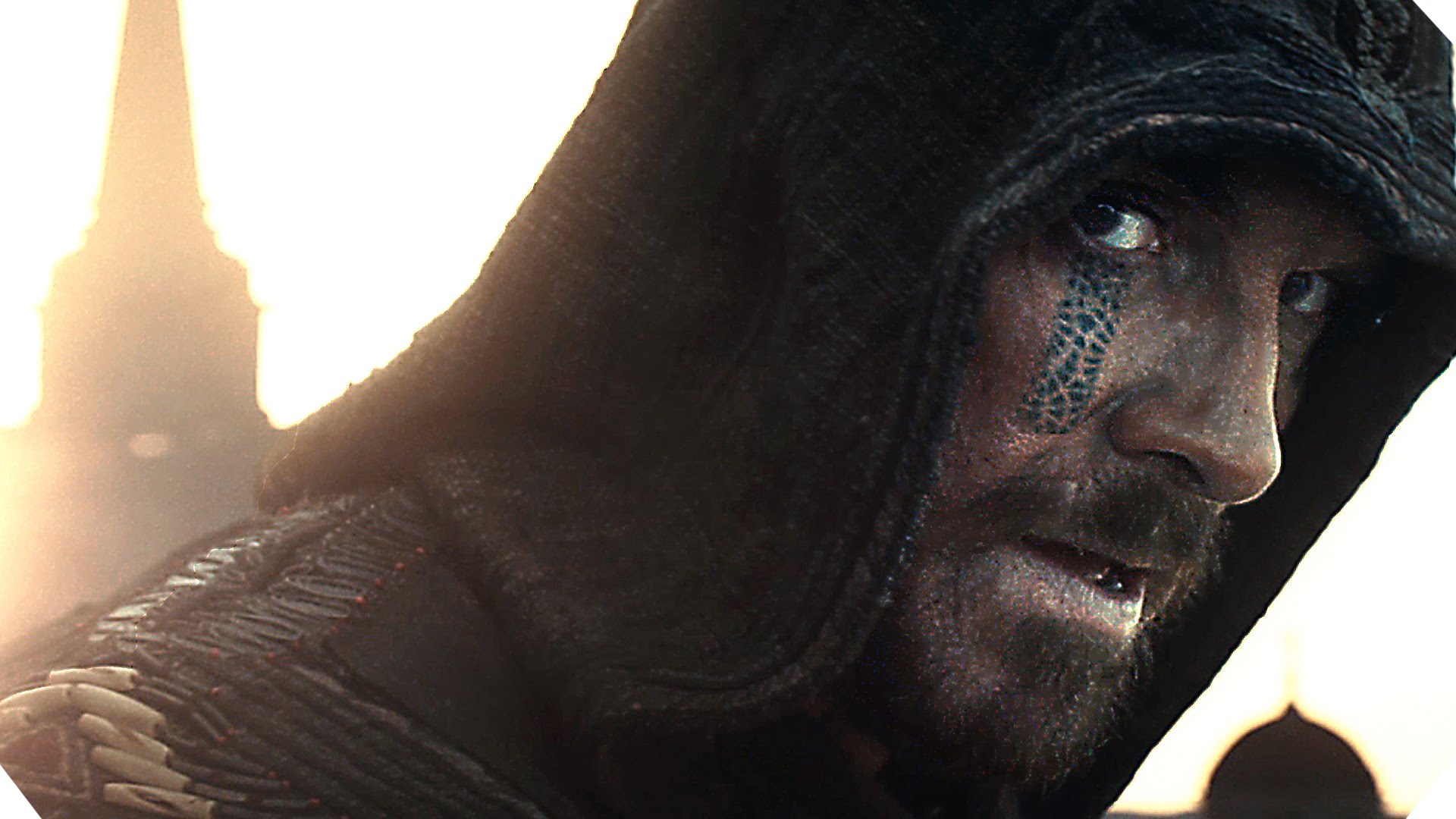This content has been archived. It may no longer be relevant
The notion that a good movie can jump from pixel to motion-picture is kind of a moot one by now. It’s not even worth doing that usual review pre-cursor of listing the roll call of cinematic failure. Perhaps only The Brotherhood of the Wolf’s Christophe Gans fumbling of arguably one of the richest video game sources yet, with his 2006 horror bore, Silent Hill, should be used as a comparison.
Justin Kurzel is from a similar art house background, hot off his adaptation of Macbeth, and bringing with him star and first-time producer, Michael Fassbender, to bring to life the phenomenally successful Assassin’s Creed series of games.
Intrinsically cinematic, even those only exposed to the TV adverts will be aware of just how visually impressive the games look. The creative challenge is in bringing that to an audience who don’t know their ‘x’ from their ‘L1’, without alienating what is a large platform spanning demographic.
It might sound like damning with faint praise to call Assassin’s Creed one of the, if not the, best video game adaptation, but it is, because despite dialling up and rushing the final third “WTF bonkers” factor, it’s aesthetically pleasing stuff, which against its own overtly po-faced default setting, is also very good fun.
Up to a point, the synopsis would fit on the back of a video game box, and just about make sense. Saved from death row execution at the last minute, Cal Lynch (Michael Fassbender) is taken to a rehabilitation facility by Marion Cotillard’s scientist, who is using pioneering genetic technology in order to eradicate violence from the world. Still with us?
This will be achieved under the watchful eye of her father, Dr Rikkin (Jeremy Irons), and require Cal to use a biotech machine in order to sync with his ancestor, Aguilar, a member of the legendary Assassin’s Creed, to find the plot Macguffin, aka the Apple of Eden. A sphere said to grant the power of free will eradication to those who hold it.
That’ll probably do for now. The rest you can work out as the movie unspools, or unravels, towards a London rooftop showdown.
Stylistically, Assassin’s Creed is a belter; more impressive than any cut-scene or ‘this isn’t real in-game play’ warning from an advertisement. The Spanish vistas are not just sun-kissed, they’re pierced, and the fight scenes kick dirt in the viewer’s eyes with their kinetic, sometimes chaotic, choreography. Fans will also be impressed with the way in which Kurzel utilises the eagle, which is used in the games as a way of surveying the environment, as a shot-transition tool.
Less success is achieved in developing the characters beyond that of an avatar at the whim of a control pad. One of the film’s major issues is the way in which it suffers from presumed sequelitis. By thinking it creates enough intrigue for you to want to have questions answered in further chapters, the script neglects to embellish on why you should care about them this time around. Those schooled in the ways of the Assassins might know more than the casual viewer, but once again, assumption can be dangerous.
As the knife wielding, hoodie wearing acrobat, Fassbender is an appealing presence. He’s proven he can do tortured soul before whilst under the stewardship of Kurzel, and whilst you never really get to scratch beneath the surface of his brooding persona, or any other characters come to mention it, his inherent charisma is ample substitute for depth. Sadly, Cotillard and Irons are simply asked to do a lot of staring whilst spouting exposition.
Image: 20th Century Fox
Assassin's Creed
Summary
With some impressive set-pieces, featuring rooftop Parkour that would make Jason Bourne think twice before taking a leap of faith, Assassin’s Creed isn’t the game changer many hoped it might be, but for the most part, it’s definitely the closest thing to a fully formed action movie derived from zeros and ones thus far. Just lighten up next time.


